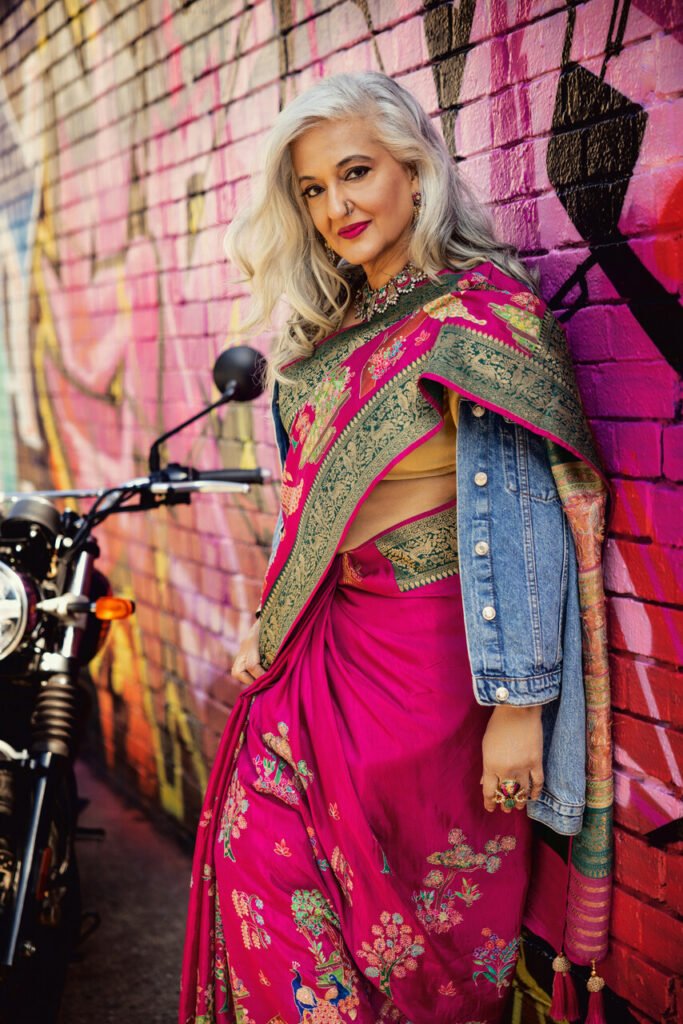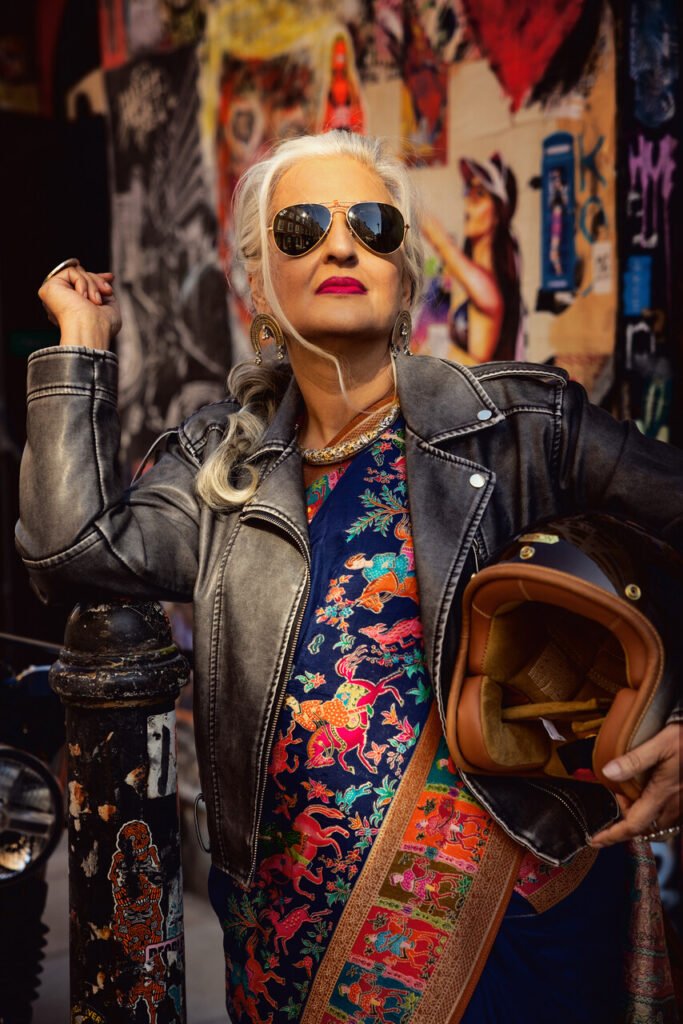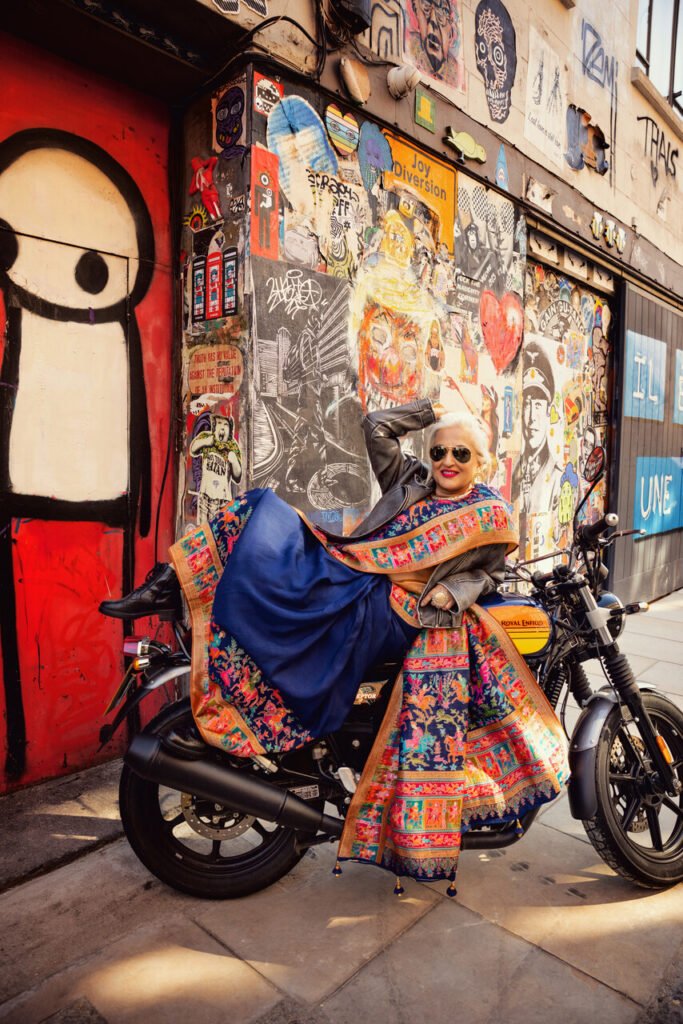“We Were Never Meant to Be Ashamed”: Seema Anand on Reclaiming the Sacred Feminine
Story by Zamiha Desai for Luxurist
When you sit down with Seema Anand, you feel it instantly—the quiet power of a woman who knows. Not just intellectually, but somatically. Rooted in ancient Indian storytelling traditions and fiercely devoted to feminine wellbeing, Seema is a beacon of clarity in a culture still uncomfortable with women’s sensuality, pleasure, and voice.
In this rare conversation with Luxurist, she shares how mythology, shame, and intergenerational silence shaped her purpose—and why reclaiming ancient feminine knowledge isn’t just radical, it’s necessary.
“Our texts didn’t hide anything. We were taught that pleasure was sacred, and that a woman’s body was a universe unto itself. This isn’t new knowledge—it’s forgotten knowledge.”
A Legacy of Silence
Seema grew up in India, surrounded by stories—yet many of them came wrapped in shame. “Nobody told us anything directly,” she says. “Even when we asked questions, we were silenced with looks, not answers.”
That silence planted a seed. Years later, as she studied ancient Indian scriptures and the Kama Sutra, she began to unravel the cultural amnesia we’ve inherited. “We think we’re modern for talking about sensuality now, but the truth is our ancestors were far more open. The shame is new, introduced by a patriarchal society because it suited their purpose. This was a form of control. And now, we carry a silence that was never meant to be ours.”
The damage of that silence extends beyond the bedroom. It shows up in how we parent, how we relate to ourselves, how we navigate our cycles and our transitions. In Seema’s eyes, there is power in naming what has been unnamed. And in her words, there is a deep longing to restore what was lost.
“We’ve disconnected from our rituals, our celebrations, our understanding of the body as sacred. That’s what I want to bring back.”
On the Sacred Nature of Pleasure
It’s impossible to talk to Seema without discussing pleasure – but not in the way popular culture defines it. Her lens is spiritual, reverent, and deeply feminine.
“Pleasure was seen as a gift, not something to feel guilty about. In Sanskrit, we say ‘Rasa’—the flavour of life. You cannot live a full life if you don’t taste it.”
She explains how pleasure isn’t just physical—it’s emotional, sensory, and intellectual. When women are disconnected from it, it impacts how we show up in every part of our lives. That absence, she believes, can lead to numbness, resentment, or burnout.
“We’ve been conditioned to give and give, to take care of everyone but ourselves. But if you don’t fill your own cup—with beauty, joy, sensuality—how can you pour into others?”
In Indian texts, pleasure wasn’t just permissible. It was a path to enlightenment. She references temple carvings, art, and poetry that celebrated intimacy and desire not as vulgarity but as devotion.
“We need to reclaim pleasure not for others, but for ourselves. It is a form of self-respect.”
Why Stories Matter
Through her storytelling—whether in viral reels or packed lectures—Seema revives lost wisdom. She bridges ancient text with modern understanding, making taboo topics like menstruation, menopause, and intimacy feel not just acceptable, but sacred.
“Storytelling was our way of transferring knowledge across generations,” she explains. “If I tell you a fact, you might forget it. But if I tell you a story, you’ll carry it with you.”
One of the stories that stays with her is of Goddess Lalita Tripura Sundari—the embodiment of sensuality and power. “She held a sugarcane bow, a lotus, and a noose—symbols of sweetness, beauty, and surrender. That’s the feminine. It’s fierce and soft. It commands without needing to control.”
Her stories are gateways. They offer new language for what many women have always felt but couldn’t name. And in that naming, healing begins.
“When a woman hears her story told in a new way, she realises there’s nothing wrong with her, she’s just been deliberately misinformed.”
Rewriting the Narrative for South Asian Women
When I ask her what she hopes South Asian women take away from her teachings, she pauses.
“That there’s nothing “wrong” with them. That everything they feel is valid. That their grandmothers held this wisdom in their bones—and we’re just picking up where they left off.”
For a community still wrestling with generational trauma, gendered expectations, and rigid ideas of respectability, Seema’s message is liberating. She doesn’t preach rebellion. She offers remembrance.
She speaks with compassion about the aunties and elders who enforced silence, reminding us they too were products of fear and survival.
“We carry their pain. But we also carry their resilience. We get to do it differently—not out of anger, but out of confidence and self knowledge.”
She encourages mothers to speak to their daughters about periods, consent, and confidence. She urges women to ask questions, to read the texts, to sit with their bodies and listen.
“Our grandmothers didn’t have Instagram. We do. We have the reach, the language, and the platform. We must use it.”
Healing Across Generations
One of the most moving parts of our conversation comes when Seema talks about healing intergenerational wounds.
She describes how trauma can live in the body, passed down in silence. But so can joy, ritual, and wisdom. p
“Every time we have an indulgent moment or touch our body for pleasure, she heals something. Not just for herself, but for the women who came before.
We’re taught how to be good daughters, wives, mothers. But not how to be good to ourselves. That’s the gap I’m trying to fill.”
The Feminine Renaissance
There’s a reason Seema Anand’s words resonate with millions. She’s part of a wider awakening—a movement of women returning to their bodies, their rhythms, their power. And she does it without shame, spectacle, or performance.
Her work reminds us that feminine wisdom was never lost—just hidden under layers of patriarchy, colonisation, and internalised fear.
“We’re not here to compete with men. We’re here to remember who we are. To take up space in a different way. A powerful way.”
An Invitation to Remember
In a world of overstimulation and undernourishment, Seema Anand’s voice is an anchor. Wise, gentle, and unafraid. As more South Asian women begin to question what they were taught about their worth, their bodies, and their desires—her work feels less like an awakening and more like a return.
“Pleasure was always ours. We just have to remember how to come home to it.”
Zamiha Desai is the co-founder of Luxurist and a vocal advocate for British South Asian women. Through her interviews and community-led storytelling, she spotlights bold voices shifting the cultural conversation.
@luxuristmag July Cover campaign with the incredible @seemaanandstorytelling
Creative Direction & styling by @anishavasanicreates
Interview by @zamihadesai
Photography and videography by @omjphotography
Hair and make-up by @simmykaurbakshi_hmua
Outfits by @raamrostyle
Jewellery by @alluring.silvers
Motorcycle by @royalenfielduk
Venue @Bahararestaurant & @ponsbourne_park

















